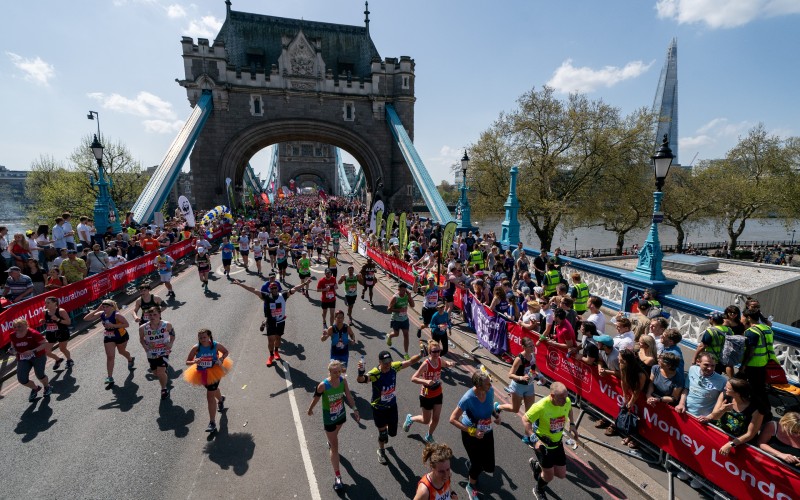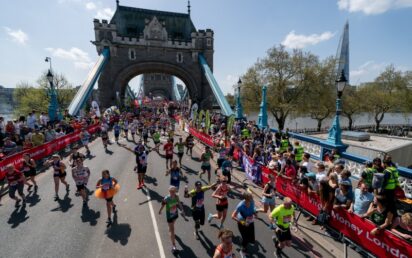Today 50,000 people will cross the start line of the TCS London Marathon – and organisers say sustainability is at the core of the world’s most famous endurance race.
The cloud-based ReScore app – launched a year ago by title sponsor Tata Consultancy Services for the non-profit Council for Responsible Sport – has measured the environmental impact of the race over the last 12 months.
The data from ReScore influenced London Marathon Events’s decision to increase the number of electric vehicles used by their event experience team for logistics: 57% of the vehicles they used during the 2023 event were electric.
The app also gives insights into the focus areas to reduce the event’s sustainability footprint. One such insight was that emissions from apparel formed a surprisingly large proportion of LME’s overall footprint: this year, clothing dropped into special collection points at the start areas – keeping participants warm before striking out – will be collected by the Salvation Army to be sold in its shops or recycled.
Other new green initiatives for 2024 include finishers’ medals made from recycled zinc and water refill stations.
Accurate reporting is essential to ensuring the success of such initiatives, especially in light of United Nations Environment Programme research which estimates that 68% of its Sustainable Development Goals do not have enough data to assess progress towards achieving them.
“We’ve learned that having an overall target to aim for can drive change more quickly than would otherwise be the case,” said Kate Chapman, head of sustainability at London Marathon Group.
“The data from ReScore provides valuable insights that guide tactics to reach our net zero goal.”
LME has set itself the ambitious target of reaching Net Zero carbon emissions by 2030.
Initiatives continued from previous years include kit bags made from sugarcane – a type of bioplastic that is recyclable – event T-shirts made from 100% recycled polyester, 100% recycled water and energy drink bottles (excluding the cap and label), generators powered by vegetable oil and electric support vehicles.
Meanwhile leftover food and drink products are donated to The Felix Project, a London-based food waste and redistribution charity that rescues surplus food and delivers it to almost 1,000 frontline charities, primary schools and holiday programmes to help feed local communities.
All international ballot participants have also paid a carbon levy to help compensate for greenhouse gas emissions associated with overseas travel. This is then spent on carbon removal credits.
The ReScore app leverages cloud computing and data analytics expertise from TCS and can be used by organisers at other sporting events.
Vinamra Shuka, sub-business unit head in manufacturing at TCS, said: “We developed ReScore to be a one-stop shop for responsible event planning, offering a tracking and monitoring system, templates, resources, and best practices.
“Additionally, the ability to have multiple reporters and users, from interns to event directors, increases transparency and efficiency. LME has been a model user of the technology platform, using it to enhance and track a strategy that was already in place.”
The 2023 TCS London Marathon was the first major UK mass participation event to be certified by the Council for Responsible Sport, and it was the biggest running event in the world to receive Gold Certification.
London Marathon mission complete: An experience like no other


